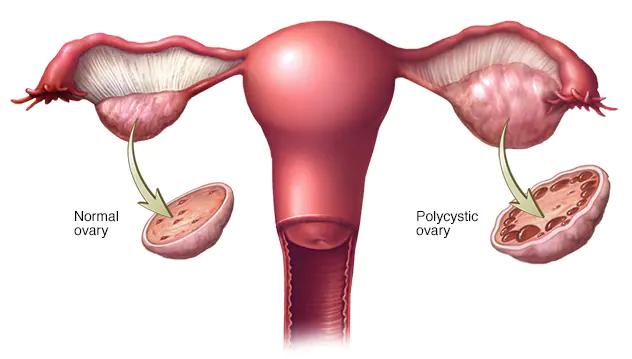Polycystic Ovary Syndrome (PCOS)
- Home
- / Polycystic Ovary Syndrome (PCOS)

Polycystic Ovary Syndrome (PCOS)
Symptoms
Irregular Periods: Infrequent, irregular, or prolonged menstrual cycles are the most common sign of PCOS.
Excess Androgen: Elevated levels of male hormones may result in physical signs, such as excess facial and body hair (hirsutism), and occasionally severe acne and male-pattern baldness.
Polycystic Ovaries: Your ovaries might be enlarged and contain follicles that surround the eggs. As a result, the ovaries might fail to function regularly.
Treatment
PCOS treatment focuses on managing individual concerns, such as infertility, hirsutism, acne, or obesity. Specific treatment might involve lifestyle changes or medication.
Lifestyle Changes:
Weight Loss: Can improve insulin sensitivity and lower androgen levels. Even a modest reduction in your weight — for example, losing 5% of your body weight — might improve your condition.
Exercise: Helps lower blood sugar levels. Exercise also helps you maintain your weight and might help with insulin resistance.
Medications:
Birth Control Pills: Regulate hormones and menstrual cycles, reduce androgen levels, and can help with acne.
Anti-Androgen Medications: Such as spironolactone to reduce hair growth and acne.
Metformin Used to treat type 2 diabetes, it improves insulin resistance and can help lower insulin and androgen levels and may restore ovulation.
Clomiphene: An anti-estrogen medication taken during the first part of the menstrual cycle. It’s used to stimulate ovulation.
PCOS is a complex hormonal disorder that can affect a woman's overall health and quality of life. Early diagnosis and treatment, along with lifestyle changes, can help manage symptoms and prevent long-term complications.
